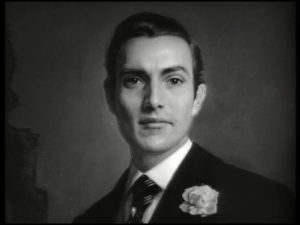
Dorian Gray
I came across the Mother’s comment about the fate of dictators this morning. She said:
“It is painful for a being that seeks power for themselves or power over another, whether it is a parent over a child, a husband over a wife, a man over an army. It matters not.
“The yearning [for], the exercise of control never gives joy. The pain simply grows. And so the actions become more grotesque, larger, until the breakdown is and has [been] and will be occurring.” (1)
I remembered the rapid decline of Adolf Hitler from a mezmerizing speaker to a palsied old man who lost the luster in his eyes. It happened in the six short years of World War II.
And, in reverie, I compared the fall of Hitler to the fall of the main figure in Oscar Wilde’s The Picture of Dorian Gray. (2)
Then suddenly a deeper understanding of that story opened up for me. I saw the way in which the novel captured a pattern of human behavior.

Adolf Hitler
Dorian Gray had a portrait of himself hidden away because it, inexplicably, took upon itself the consequences of Dorian’s dissolute life.
The portrait became, to use the Mother’s word, grotesque while Dorian remained his young and handsome self, apparently free of his offloaded karma.
In the end, Dorian, unable to look at the painting’s hideousness, slashed it and was found dead on the floor the next morning, with a knife in his stomach, his face grotesque. (The portrait was pristine again. That’s it at the top of the page.)
In a moment, I became aware of the motif’s relationship to the unaware mind.
How that works goes like this:
After a troublesome event, I create a well-crafted story of my involvement, in which I star as the perpetual hero. I take all manner of ill things I’ve done and make a good yarn out of it.
In my yarn, I’m always justified. I always emerge looking good, like the young and handsome Dorian Gray.
Meanwhile, I project all the “blame” for the bad things that happen, the failures, losses, etc., onto other people (the picture). Consistently. Like a habit I cannot and will not break.
Sociologists refer to this as the self-serving bias. Spiritual folks call it service-to-self. Adamu called it “other-responsible” behavior. (3) An extreme form of it is narcissism.
According to its tenets, we glorify ourselves and denigrate others. We magnify our own accomplishments and minimize others’. We make ourselves responsible for success but others responsible for failure.
And we do it mostly outside awareness. Or we have a flickering moment in which we know what we’re doing and then put our face back on and clamber back on stage.

Coralization
In the end, we’re left with only our projections. Our self-serving way of operating is so far from the truth that we turn ourselves into the walking dead.
Coralization, I used to call it. We lose all discrimination. (4) We merely relive and rehearse our story, which no one wants to hear anymore.
We’ve become the picture of Dorian Gray.
I get a chill thinking about it.
Claim success as our own but blame the external world for failure. That’s the picture of Dorian Gray.
Footnotes
(1) Transcript ~ The Divine Mother: Take Up Your Divine Authority, AHWAA, February 23, 2017, https://goldenageofgaia.com/2017/02/28/transcript-divine-mother-take-divine-authority-ahwaa-february-23-2017/.
(2) Viewer discretion is advised. Available on Youtube. Not recommending it, even if the motif is instructive.
(3) Suzanne Maresca, “Notes on Adamu Speaks ~ Timelines… and the Dissolution of the illuminati!”
(4) “Coralization, Oct. 17, 2011, at https://goldenageofgaia.com/2011/10/17/coralization/

